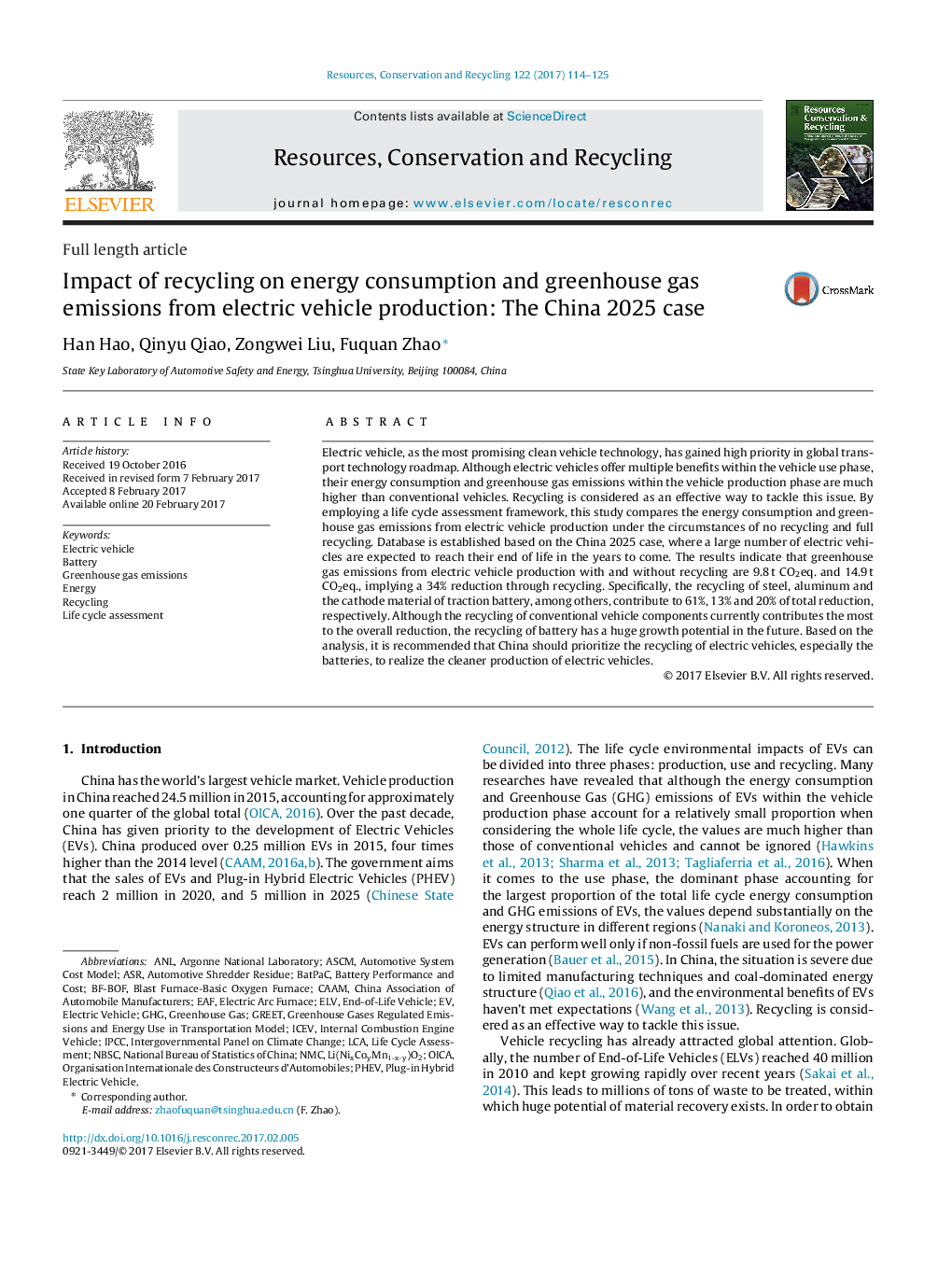| Article ID | Journal | Published Year | Pages | File Type |
|---|---|---|---|---|
| 5118782 | Resources, Conservation and Recycling | 2017 | 12 Pages |
â¢Greenhouse gas emissions from electric vehicle production with no recycling and full recycling are compared.â¢Full recycling offers a 34% reduction of greenhouse gas emissions compared with no recycling.â¢The recycling of steel, aluminum and battery cathode materials are the major contributing factors.
Electric vehicle, as the most promising clean vehicle technology, has gained high priority in global transport technology roadmap. Although electric vehicles offer multiple benefits within the vehicle use phase, their energy consumption and greenhouse gas emissions within the vehicle production phase are much higher than conventional vehicles. Recycling is considered as an effective way to tackle this issue. By employing a life cycle assessment framework, this study compares the energy consumption and greenhouse gas emissions from electric vehicle production under the circumstances of no recycling and full recycling. Database is established based on the China 2025 case, where a large number of electric vehicles are expected to reach their end of life in the years to come. The results indicate that greenhouse gas emissions from electric vehicle production with and without recycling are 9.8Â t CO2eq. and 14.9Â t CO2eq., implying a 34% reduction through recycling. Specifically, the recycling of steel, aluminum and the cathode material of traction battery, among others, contribute to 61%, 13% and 20% of total reduction, respectively. Although the recycling of conventional vehicle components currently contributes the most to the overall reduction, the recycling of battery has a huge growth potential in the future. Based on the analysis, it is recommended that China should prioritize the recycling of electric vehicles, especially the batteries, to realize the cleaner production of electric vehicles.
